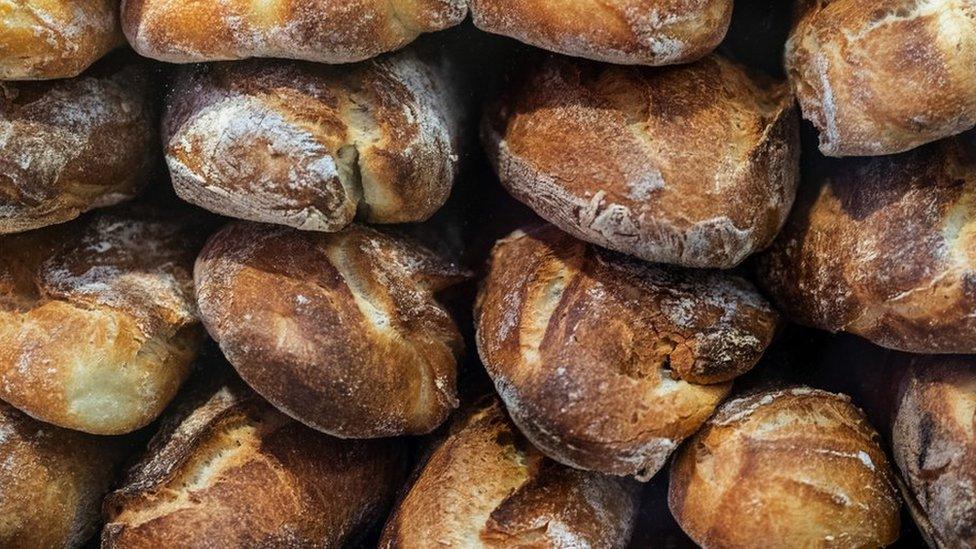Unesco: French baguette-making has been recognised
- Published
- comments

We're getting hungry just thinking about it!
When you think of France, what comes to mind?
Along with the Eiffel Tower and amazing cheese, we'd wager the baguette is probably up there.
And now, those delicious breadsticks (or more accurately, the art of making them) have been internationally recognised as an extremely important part of French culture!
French baguette baking has been awarded the very prestigious Unesco 'intangible cultural heritage', or ICH for short.
But what does this mean, and what other things have been given ICH status? Read on to find out!
The art of baguette making has been passed down for generations
What is Unesco?
Unesco stands for United Nations Educational, Scientific and Cultural Organization.
It's a global group that aims to get countries working together in fields such as education, science, culture, communication and information.
This is Unesco's headquarters in Paris
It was founded after World War Two, in the hope that sharing knowledge between countries would help promote peace, and avoid further wars.
As part of its work, they award two different statuses - Unesco World Heritage Sites, which is for places, and Intangible Cultural Status, for skills.
Stonehenge in the UK was named a Unesco World Heritage Site in 1986
What does Intangible Cultural Heritage mean?
Intangible Cultural Heritage status is awarded when something is recognised as being an important part of a country's culture.
A law was introduced in 1920 that said a baguette's minimum weight had to be 80 grams, and its maximum length could be 40 centimetres (although they can be longer now)
More than 6 billion baguettes are baked every year in France
They can only contain four ingredients - flour, water, salt and yeast
Baguettes can only be made of flour, water, yeast and salt
But it's called 'intangible' because it means something you can't pick up - for example, a baguette can't be awarded an ICH, but the act of making it can.
Folklore, traditions and languages can all also receive ICH status - they all get passed down over generations, and become embedded in a country's culture.
What other food-making skills have ICH status?
Food-making practices from across the globe also have ICH status
The art of Neapolitan 'Pizzaiuolo': Pizza from the Italian city of Naples is very distinctive. It's quite thin, and is always baked in a traditional wood-fired oven.
Making and sharing of kimchi: Kimchi is a dish of fermented vegetables, and is a staple of households in Korea. Communities prepare and make it all year round to share between households.
The Mediterranean diet: In countries such as Cyprus, Morocco and Spain, ingredients such as olive oil are used in lots of dishes. But these cultures also share some eating practices, particularly eating together in big groups.
- Published18 November 2019
- Published8 April 2022
- Published9 September 2021
